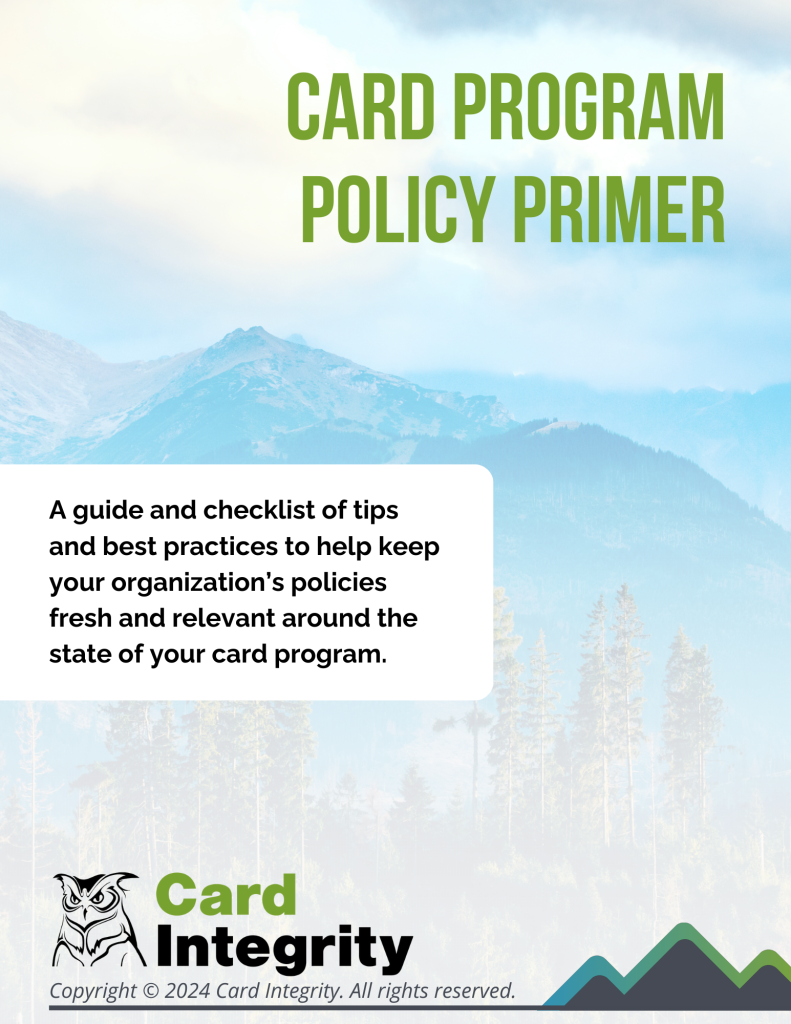Streamlined expense programs are high on the list of cost-saving strategies for companies —but aren’t always a priority for its participants. However, creating clear communication between management and employees can help build incentive throughout the entire company to care about and comply with an expense program and its policies.
The communication that results from sufficient training, adequate feedback, strong accountability, and an established review system can help maximize time-efficiency, savings, and compliance. These following four steps can foster the communication needed between cardholders, managers, and the various departments involved in the expense system, to ensure an effective, successful program.
Aim for Clarity to Achieve Compliance
Education and training are extremely important for compliance in any expense program. It’s critical that every cardholder and manager is familiar with all policies and best practices.
However, expense reports, receipt reconciliation, and the transaction review process can be overwhelming for new and, in some cases, current participants. To combat this overwhelm, the training offered should be accessible, consistent, and clear.
Interactive training ensures engagement and further promotes compliance. Tracking attendance, utilizing exams to assess comprehension, and requiring signed policy statements can help confirm that the trainees fully understand what’s being taught.
While adding on the task of training staff might seem like an enormous burden to your company, keep in mind its importance to your expense system, and the work and money it will save in the long run.
Lighten your load
Card Integrity offers customized training tailored to your specific company needs. Click here to learn more about our TrainingWISE cardholder training program.
Normalize Accountability
Without proper systems in place, it’s easy for communication between managers and cardholders to break down—or even subside completely. To prevent a breakdown, consistent communication via email updates for cardholders and management should be a routine process within your expense program.
Such consistency acts as a reminder to employees that someone — just as often — is monitoring their spending behavior, which in return provides what is often referred to as the “Hawthorne Effect.” The Hawthorne Effect has been studied in psychology for decades, and it basically entails that people behave differently when they know they are being observed. In the context of financial controls, the theory asserts that employees who know that their finances are being reviewed will adjust their behavior accordingly, in a positive manner, so as not to be “caught” doing anything wrong. This constant communication also quickly sheds light on any real issues and provides the opportunity for those issues to be corrected just as swiftly.
Regularly sent updates to cardholders create a clear line of communication and accountability. Managers should be included in email correspondence to encourage proper behavior and the incentive to comply. Even small reminders for cardholders to turn in receipts or stay at a particular hotel can translate to significant cost savings and program efficiency.
Did you know?
Card Integrity offers an email communication service, so that the procurement and purchasing professionals at our client organizations don’t have to. Sometimes having a third party send notifications about non-compliance or similar alerts can alleviate stress in the workplace environment, as well as take busywork off of your plate. We can send reminders and notifications about policy updates as well.
Prioritize Alerts
Positive reinforcement and constructive insight will improve program confidence and reduce the risk of misunderstandings. While it’s important to establish regular email correspondence with cardholders, sharing too much information can be detrimental to your communication goals. It’s unnecessary to send every single finding; rather, choose only the top alerts to share with cardholders.
You might be pleasantly surprised to find that many well-meaning employees will appreciate the feedback. But remember not to over-report to those cardholders who regularly practice good purchasing habits.
Revisit and Review
By implementing regularly scheduled reviews and feedback, you can also apply proper updates to the program and its policies. Expense programs should use both cardholder and manager feedback along with data findings to adjust procedures accordingly, to maintain an ever-improving system.
Make sure you encourage employee feedback on policies and procedures, and then establish a method for collecting this feedback in an effective manner. When program policies are updated, distribute the new material throughout the company, making it available to participants in an always easy-to-find place — perhaps online.
Turning the Communication Key
It’s one thing to acknowledge that communication is an important key within your expense program. It’s yet another to “turn” that key — to actually put that communication to work within the program. But with communication services so readily available and easy-to-implement from Card Integrity, implementing these steps becomes the natural next step to improve the efficiency of your expense program.
For more tips and tricks about workplace communication as a whole, check out our article, Workplace Communication: Quick Tips for Procurement Managers here.
Solutions to Fit Your Card Program
Communication is just one component that goes into a strong card program policy, though certainly among the most important. Download our free Card Program Policy Primer below for more tips and tricks on how to get the most out of your card program.




